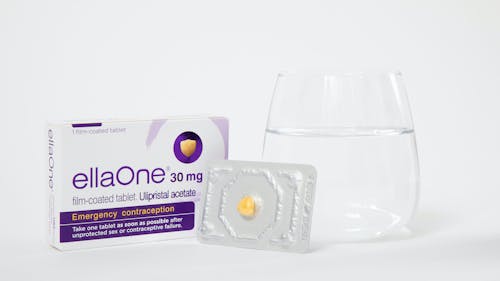U. introduces $25 emergency contraception pills in vending machines

This semester, the University started offering emergency contraception (EC) pills in 14 Vengo vending machines at the New Brunswick campus and one at the Newark campus.
Noa'a Shimoni, associate vice president of Student Health and Wellness, said the vending machines carry a generic version of the EC pill, also known as the morning-after pill or Plan B, for $25 per pill.
Without insurance, the EC pill can cost approximately between $40 and $50 when purchased over the counter at a pharmacy.
Shimoni said the University opted for the more financially accessible pill since the generic and on-brand versions of the pill are the same.
"There's absolutely no difference in the medication, whether it's called Plan B or levonorgestrel 1.5 milligrams, and emergency contraception in this form of a progesterone pill is safe with very few contraindications," she said.
People can take the EC pill, which prevents ovulation, to lower the risk of unwanted pregnancy, Shimoni said. The EC pill can be approximately 75 to 89 percent effective if ingested within three days of unprotected sex, according to Planned Parenthood. If the person taking the EC pill has already ovulated, the pill is ineffective but harmless, Shimoni said.
The initiative of getting the EC pills in the vending machines was student-run, she said. Shimoni said she started receiving requests for it in late 2022 and began discussing it with the Rutgers University Procurement Services in the Spring 2023 semester, with the pills arriving in on-campus Vengo vending machines in the Fall 2023 semester.
She said that to her knowledge, there was no pushback on the proposed addition of EC pills to vending machines.
"(The University Procurement Services) crossed all their t's, dotted all the i's, got all the correct permissions and things moved forward," Shimoni said.
She said the University Procurement Services also keeps the pills in stock with an internal inventory system. Shimoni said she recommends that students visit health care professionals to consider which method of contraception suits their unique situations, even as a preventative measure.
Acquiring a prescription for emergency contraception beforehand can also ensure insurance coverage under many plans, she said.
"There's a lot of contraceptive care that's available," she said. "I think it's really important for students to be honest with themselves about if they're having any issues with a contraceptive and to advocate for themselves and to engage in a conversation with ... their health care provider."
While University-wide communication on the vending machine offering has been limited, communication in some form can be expected, Shimoni said.
She said students frequently utilize services offered by Rutgers Student Health, such as providing, prescribing or inserting hormonal or non-hormonal contraceptives.
Shimoni added that lower-maintenance, longer-term forms of contraception, such as intrauterine devices and the Nexplanon birth control implant, have also become increasingly accessible in recent years.
"It's nerve-wracking to have unprotected intercourse and not know what the outcome is going to be and to have to run to find emergency contraception. And so, we obviously want students to be empowered and to have agency to be able to protect themselves before that even happens," she said.



